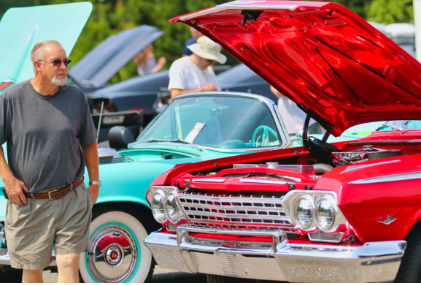
10 Things to Consider Before Buying a Classic Car
Purchasing a classic car can be a thrilling and rewarding experience, offering the chance to own a piece of automotive history. However, buying a vintage vehicle comes with its own set of challenges. Here are ten important factors to consider before making your purchase.
1. Research the Make and Model
Before diving into any classic car purchase, it’s essential to do thorough research on the make and model you’re interested in. Different models have varying levels of reliability, ease of maintenance, and availability of parts. Some cars, like the Ford Mustang or Chevrolet Camaro, are widely known for being relatively easy to restore and maintain, while others may be rarer and harder to find parts for. Understanding the history, common issues, and market value of the car you’re considering can save you a lot of time and money down the road.
2. Set a Budget
Classic cars can range in price from a few thousand to hundreds of thousands of dollars, depending on the rarity and condition of the vehicle. Setting a realistic budget is key, not only for the initial purchase but also for ongoing maintenance, repairs, and insurance. It’s important to account for the cost of restoration (if necessary), as well as the availability of parts. Some classic cars may seem affordable upfront but require significant investment to bring them to a drivable or show-worthy condition.
3. Consider Condition Over Age
When buying a classic car, don’t focus solely on its age. The vehicle’s condition is far more important. A car that has been well-maintained, even if it’s older, can be a much better investment than a younger car that has been neglected. Look for signs of rust, structural damage, or any major repairs. Be especially careful with vintage cars that have been sitting for long periods, as rubber seals, hoses, and other materials may deteriorate over time.
4. Verify the Vehicle’s History
A car’s history can reveal important information about its past ownership, accidents, and modifications. Request a full vehicle history report through services like Carfax or AutoCheck. Pay attention to whether the car has been involved in accidents, if it has a clean title, and whether it’s been restored or modified in any way. Authenticity is crucial, especially for rare or collectible cars, as modifications can impact the car’s value.
5. Check for Parts Availability
When considering a classic car, it’s important to think about parts availability. Some older models may have limited aftermarket support, and finding replacement parts can be difficult and expensive. Some vehicles, however, have a large network of enthusiasts and suppliers, making it easier to find parts for restoration or maintenance. Be sure to check if the parts you may need are readily available before committing to a purchase.
6. Consider Storage and Maintenance
Classic cars often require special care, including climate-controlled storage and regular maintenance. If you don’t have a proper garage or workshop, storing a classic car can become a challenge. Furthermore, older vehicles typically need more frequent attention than modern cars, so be prepared for the ongoing costs and time investment involved in keeping a vintage car in good running condition.
7. Insurance
Classic car insurance can be different from regular car insurance. It’s important to look into specialized coverage options that account for the vehicle’s value and its unique needs. Many classic car insurers offer agreed value policies, which ensure that in the event of a total loss, the car’s market value at the time of purchase is paid out, rather than its depreciated value.
8. Test Drive and Inspection
Never buy a classic car without taking it for a test drive. A test drive will help you evaluate the car’s handling, brakes, engine performance, and overall roadworthiness. It’s also advisable to have a professional mechanic conduct a thorough inspection to assess the mechanical health of the vehicle. They can check the engine, transmission, suspension, and frame, which may not be immediately obvious to an untrained eye.
9. Know Your Goals
Before purchasing a classic car, decide on your ultimate goal. Are you looking for a car to restore, a vehicle for daily driving, or a collector’s item for investment purposes? Your goals will influence the make, model, and condition of the car that best suits your needs. If you’re planning to restore the car, you’ll need to factor in the availability of parts and your own mechanical skills.
10. Be Prepared for Long-Term Commitment
Owning a classic car is not like owning a modern vehicle. It requires time, money, and effort. Whether you’re restoring a barn-find or simply maintaining a vintage daily driver, a classic car demands attention. It’s not a short-term fling, but rather a long-term commitment to preserving and enjoying automotive history.
Conclusion
Buying a classic car is an exciting venture, but it comes with unique challenges and responsibilities. By doing thorough research, understanding the costs involved, and knowing your personal goals, you can ensure that your investment in a classic car is both rewarding and enjoyable. With the right preparation, you can experience the joy of owning a timeless piece of automotive history.
Leave a Reply